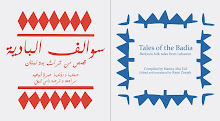"Rich governments and corporations are triggering alarm for the poor as they buy up the rights to millions of hectares of agricultural land in developing countries in an effort to secure their own long-term food supplies.The head of the UN Food and Agriculture Organisation, Jacques Diouf, has warned that the controversial rise in land deals could create a form of "neo-colonialism", with poor states producing food for the rich at the expense of their own hungry people."
Inside there is also a good dossier on Madagascar, Malaysia and Brazil. This new trend, adequately described as "land-grab", is an issue I have posted about frequently on this blog: that of the land deals currently going on between the governments of rich countries of the developing world (Gulf states, South Korea) and and those of poor countries which happen to have a reasonable natural endowment. While the finger is always pointing at the Gulf countries (and rightly so, this is part of a food strategy that came in response to the food crisis), this time, it is South Korea which has apparently leased one million hectares for 99 years in Madagascar. The island has one of the most diverse and unique biodiversity in the world, and although I am not a palm reader I can safely bet that large scale industrial agriculture will not foster environmental preservation.
But I have a question here: why the surprise? What is -really- the difference between this and the fact that multinational corporations already control, through monopolies and monopsonies, food production in many poor countries, from Latin America to Eastern Asia? What are we worried about here? That the food produced in these large farms-colonies will be exported to South Korea or to Saudi Arabia instead of being available to the local people? But this is already happening everywhere, through export-oriented food production. In Egypt, for instance, organic food production on large scale farms managed by local investors, in partnership with foreign groups, produce food that is only destined for export. In India, the best quality fruits are shipped while the lower quality is sold on the local market.
Countries focusing on export encourage farmers to ship their "good" products (peanut oil in West Africa, for example) and, with the money they earn (a tiny little bit of money) buy imported, cheap and less healthy products (palm oil for example). The balance goes into the state coffers which communicate directly with politicians pockets. What will be so different if large scale export farming takes place on land leased by a foreign state or consortium, rather than by an international corporation? What will be different even if corporations are today looking towards buying export goods from cooperatives of small farmers? Not much, really: this is how the international trade-based food system already operates. Even in the case of the coops, the farmers are not really free because they are fully controlled by the pricing structure. What we are seeing is merely a variant.








+081.jpg)



No comments:
Post a Comment